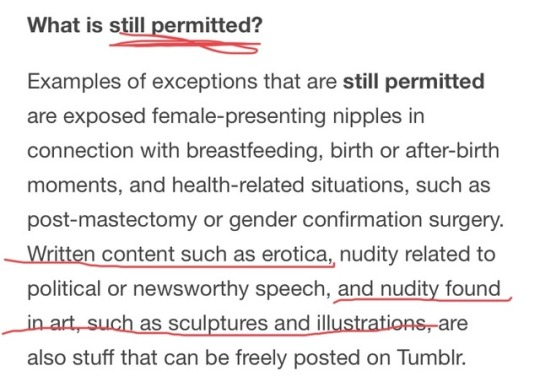Articles of Interest is a bi-monthly retrospective on the five or so most interesting things I’ve read during the titular two-month period. The intent is for there to be a few weeks of “lag” time between when I first read the articles and when I curate this collection, so that my selection isn’t biased by ongoing hype or sensationalism. The articles aren’t necessarily published during this period, although many of them are – I choose my collection from what I’ve bookmarked over the two months. Here are my picks for June and July:
The Privilege of Property (Kondo and the Bibliophibans, Part 2a) (archive)
(The other parts of the sequence are also very worth reading; they are linked at the top of the post.)
“If we keep it real for a minute, Trudeau is not the first (or last) white male to darken their skin in supposed jest. As someone who has spent the last 10 years studying blackface in Canada, the one thing I know to be true is that blackface is as Canadian as hockey. It literally was (is) performed everywhere.”
This piece gave me a lot of feelings. In the beginning was the especially ugly type of anger that comes from feeling entitled to something you’ll never have. From knowing that twenty years ago, people who were making less than you got away with having expensive hobbies that you can’t afford and living in spacious homes in the middle of dense, lively American cities, and that you’ll never, ever be able to do that, so you were being cheated in some way.
And after that burnt away I was left with a lot of sadness and resignation. This thing that was good for us was taken away for some incredibly shit reasons, and there’s no way of talking about it that makes me not come off as a spoiled, entitled millennial, that allows me to be taken seriously. I feel like this is a thing that more people should know about because not knowing your history means that you have a worse grasp on what’s possible to change. But fat chance of that happening on a large scale, yeah?
But it also left me kind of hopeful? To know that this kind of lifestyle was possible at all, as recently as the nineties. It’s not a pipe dream.
Brought to mind a professors’ lecture tangent, about how if Japanese couples were able to raise a family in cramped Tokyo one-bedrooms then we should re-examine our desire for large amounts of space, because maybe it was just some American extravagance that has no place in a warming planet. Suddenly that doesn’t sound like the entirely correct reasoning. Smaller spaces won’t give you enough room to build a more self-sufficient, sustainable lifestyle and a community. Space is necessary for us to plan and prepare. Space is necessary for us to thrive.
“The Minnesota Diet” (archive)
There’s a new etiquette, which spreads via people’s Savants and Flings. Don’t talk about food in front of other people. But if someone else talks about food in front of you, don’t lose your shit at them. Don’t try to make anyone watch a movie, or Virtual Immersive Scenario, in which people are eating. Talk quietly, and above all don’t yell. Don’t be fatalistic. Don’t proclaim false hope, or insist that everything is going to be fine. Don’t judge other people’s weird food rituals: the way they hold food in their mouths for a long time before swallowing, mix it with water, or even cradle a piece of food in their arms like a baby. Don’t blame your partner(s) for lacking sex drive, or for being uninterested in romance. If people need to be alone, leave them alone. Most of all, don’t judge people for listlessness or apathy, or the inability to get out of bed—but do try to keep other people moving, at least enough to avoid muscle atrophy.
A short story about a food shortage in a post-scarcity smart city. I haven’t really gotten the hang of summarizing fiction pieces yet, but I really liked it. It got me thinking about how like, the word “hunger” has a place in our vocabulary still, right? But when was the last time that you’ve seen it to mean the actual, bodily sensation of starvation, instead of some dumb “be wanting things” precariat/consumerist slogan? The story hangs in an interesting space, in the space of the nine meals that it takes for society to collapse.
Why Privilege Discourse Predominates (archive)
Today, privilege discourse is the dominant framework for discussing racism. It’s a multi-million dollar industry, as universities, corporations, and the US military institute privilege courses. The dominant position this discourse occupies—especially its patronage by white supremacist institutions like the military and big business—indicates that large segments of the ruling class find the overwhelming focus on privilege discourse to not only be non-threatening, but valuable.
A good piece from 2016 that outlines where the Social Justice Brigade is probably heading in the next decade.
The Phantom Men-ness (archive)
Most men have an inarticulate understanding, way down in their guts, that this is how things work for them. I think most women don’t. Just as it’s hard to really get the feeling of being constantly objectified, when you’re not, it’s hard for a valued person to get the feeling of being completely disposable.A man can do things to make himself valuable. He can become strong, wise, rich, accomplished, creative, charming, lots of options. He can fill any of a thousand roles. But doing so will always require talent or effort or luck or some combination of the above. And it’s always very, very contingent on demonstrated success. It is not a default. It cannot be a default.
And a man who can’t call upon a substantial degree of excellence, in something, is worthless. There’s nothing he can offer. There’s no role for him to play. There’s no real reason for anyone to show him any respect. If you want to get anything at all out of this life, you have to earn it, you have to carve it out for yourself. No one will love you, or even pity you, just for being yourself.
A man can do things to make himself valuable. He can become strong, wise, rich, accomplished, creative, charming, lots of options. He can fill any of a thousand roles. But doing so will always require talent or effort or luck or some combination of the above. And it’s always very, very contingent on demonstrated success. It is not a default. It cannot be a default.
The opposite of objectification is subjectification, the idea that you alone are responsible for every single thing in your life. This is an interesting dive into how that feels, and as someone who is AFAB, it sounds frankly terrifying.
The Show Horse and the Work Horse (archive)
At a comfortable distance from the country club set and elegant homes on leafy hillsides there’s a working class town where I accidentally stumbled on a flea market the day before. It’s composed of an old asphalt parking lot, tents, and portable shipping containers. There isn’t anything about the place that cost much to build or maintain yet it functions like a traditional human scaled Main Street lined with mom and pop shops.
Granola Shotgun does really great photo essays about urbanism for the non-yuppie set. E and I had an interesting discussion over whether or not Johnny was right about why cities don’t encourage these sorts of flea markets more (not enough tax revenue for city hall even if it’s good for city citizens), but as usual, we got sidetracked and started talking about Seeing Like a State instead.
–
Interestingly enough, although I’ve bookmarked maybe three times the amount of content than usual during these two months, I didn’t really have a harder time picking out my faves, nor do I feel like the overall quality of these links are higher than previous links posts. I think some of this comes down to the fact that this bookmarking increase is more “bookmarking a greater % of what I’ve read” than “reading a greater number of things than usual”, although that happened too.




